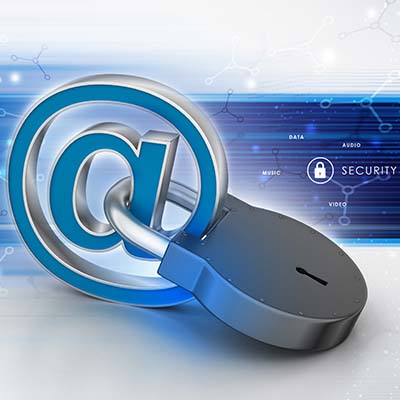Tip of the Month: Using Email While Prioritizing Safety and Security

You probably use your email every day without even thinking about it. Email is, however, one of the main places hackers go when they want to steal personal information. Here are three easy steps you can take to keep your email secure.
Use Strong, Unique Passwords
A strong password is like a firm lock on your front door: it should be tough to crack. Here’s how to make one:
- Mix it up -Use a combination of letters (uppercase and lowercase), numbers, and symbols.
- Be unique – Don’t use the same password for multiple accounts. If a hacker gets one password, they can get into everything.
- Don’t use obvious info – Avoid using your name, birthday, or anything easily guessed. For the most secure password, try a random phrase that incorporates the above tips.
Enable Two-Factor Authentication
Two-factor authentication (or 2FA) is like adding an extra lock to your door. When you turn on 2FA, you’ll need a code (often sent to your phone) each time you log in, along with your password. Even if someone gets your password, they can’t get in without that code. Here’s how to set it up:
- Go to your email settings.
- Look for security settings, and find two-factor authentication (sometimes called multi-factor authentication or verification)
- Follow the steps, and you’ll be much safer from hackers.
Be Careful with Links and Attachments
Cybercriminals often use emails to try and trick you. If you get an email with a weird link or an unexpected attachment, that’s a red flag. Signs it could be fake include:
- It’s from an unknown sender.
- The email says urgent action is needed, like “reset your password now” or “claim your prize!”
- There are spelling errors, strange phrases, or it just seems off.
If you’re unsure, don’t click on anything. Instead, try checking directly with the person or company who supposedly sent it, or just delete the email if it looks fishy. If you can’t verify the authenticity of the email, you should move on and report it to your IT administrator.
Email is an important part of doing business, and these three tips will help you keep your account and your organization’s data secure. For more great tips and tricks, check out our blog.

